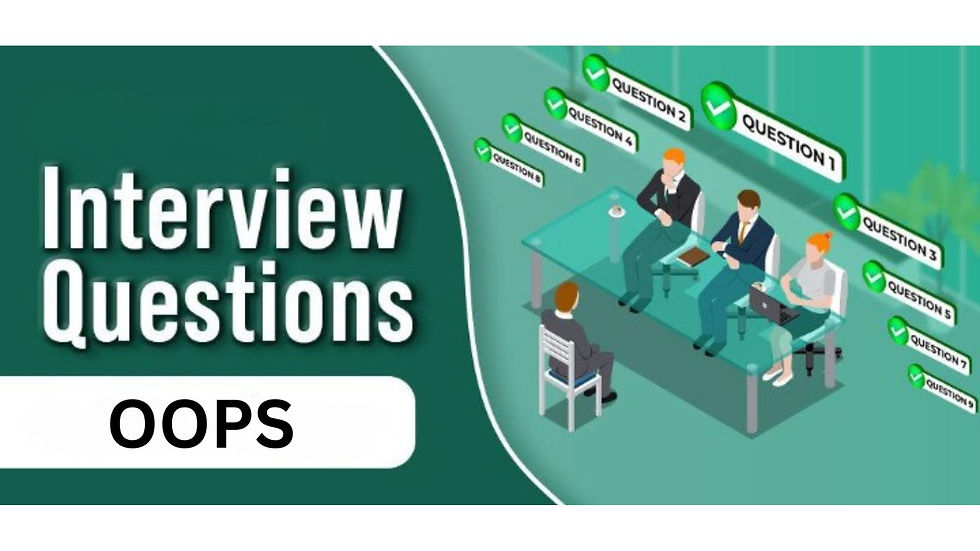How to Prepare for a Flutter Interview: Tips and Strategies
- Divyansh WsCube
- Oct 16, 2023
- 3 min read

Introduction
As Flutter continues to gain popularity in the world of mobile app development, the demand for skilled Flutter developers is on the rise. If you've secured an interview for a Flutter developer position, congratulations! To ensure you ace the interview and leave a lasting impression, it's crucial to prepare thoroughly. In this blog, we'll guide you through the process of preparing for a Flutter interview questions, covering key concepts, essential resources, and valuable strategies to help you succeed.
1. Master Flutter Fundamentals
Before your interview, make sure you have a solid grasp of the core Flutter concepts and its ecosystem. Key areas to focus on include:
Widgets:
Understand the widget tree, the widget library, and the difference between stateless and stateful widgets. Be prepared to create, customize, and nest widgets effectively.
State Management:
Learn about state management techniques, including `setState`, `Provider`, `Bloc`, and `Get X`. Understand when to use each approach and the advantages they offer.
UI Layout:
Explore Flutter's layout widgets such as `Column`, `Row`, `Container`, and `List View`. Demonstrate your ability to design responsive and flexible user interfaces.
Navigation:
Master the navigation system, including `Navigator`, routes, and route transitions. Be able to implement navigation patterns for your app.
Async Programming:
Understand asynchronous programming in Flutter using `async` and `await`. Be ready to explain how you handle asynchronous tasks and manage their state.
2. Create and Showcase Projects
The best way to solidify your Flutter skills is by building projects. Create a portfolio of Flutter applications that demonstrate your abilities. These projects can include a variety of app types, such as a to-do list, weather app, e-commerce app, or any other concept that showcases different features and functionalities of Flutter.
Make sure to document your projects and be prepared to discuss the challenges you faced, the solutions you implemented, and the best practices you followed. Highlight any unique or innovative features you incorporated in your apps.
3. Study Flutter Packages and Plugins
Familiarize yourself with popular Flutter packages and plugins. These libraries can save you time and effort when developing applications. Some well-known packages include `http` for making network requests, `shared_preferences` for local storage, and `firebase_core` for integrating Firebase services.
During your interview, you might be asked about third-party packages you've used and how you integrated them into your projects. Be prepared to discuss their functionality and why you chose them.
4. Practice Problem-Solving
Technical interviews often involve problem-solving exercises. Practice answering coding questions related to Flutter. You can find a variety of coding challenges and questions on platforms like Leet Code, Hacker Rank, or Code Signal. Work on your problem-solving skills and the ability to write clean and efficient Flutter code.
5. Stay Updated and Ask Questions
Flutter is an ever-evolving framework, with regular updates and new features. Stay current with the latest Flutter developments by following official Flutter resources, blogs, and forums. Participate in the Flutter community, and don't hesitate to ask questions or seek help from fellow developers. The ability to adapt and learn quickly is a valuable trait in any tech interview.
Conclusion
Preparing for a Flutter interview questions and answers involves mastering core concepts, showcasing your skills through projects, exploring popular packages, practicing problem-solving, and staying updated with the latest trends. By following these strategies, you can approach your interview with confidence and demonstrate your expertise as a Flutter developer. Remember to be clear, concise, and enthusiastic in your responses during the interview, and good luck!



Comments